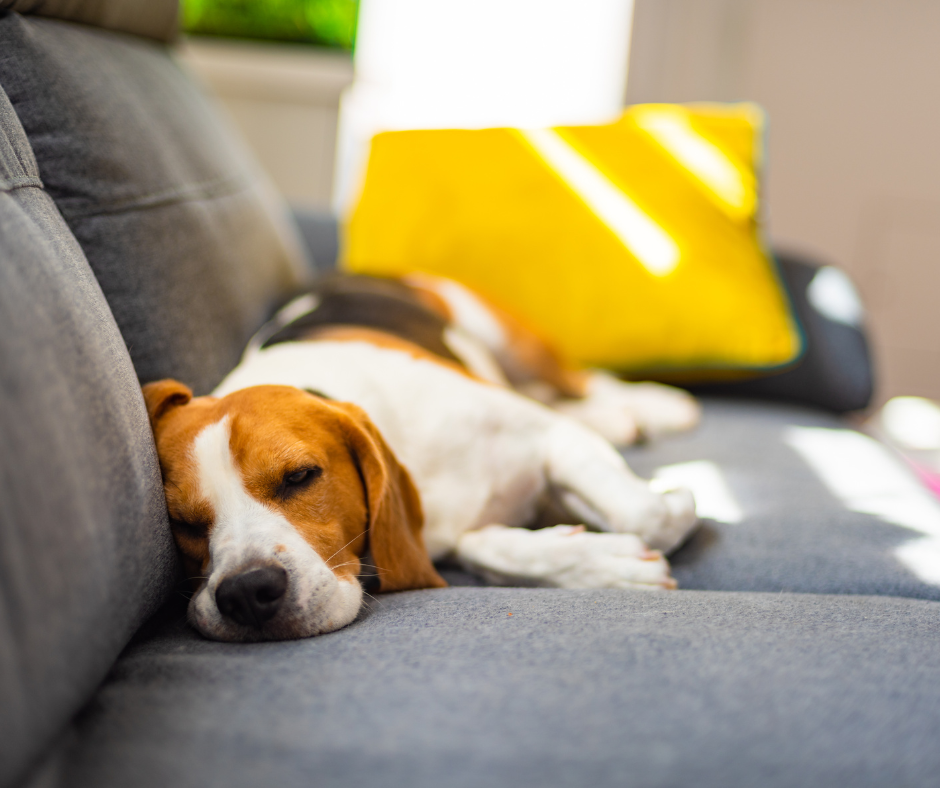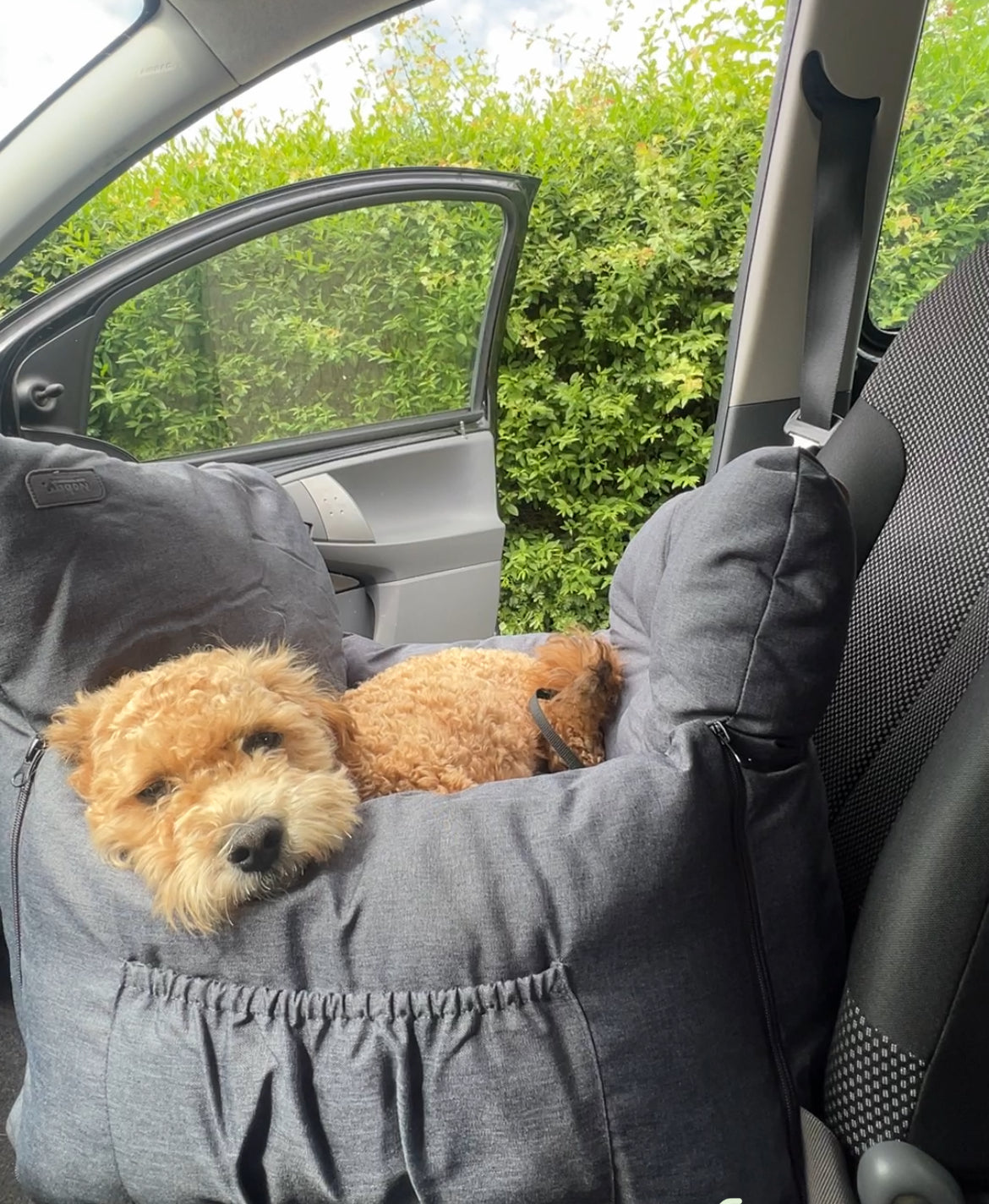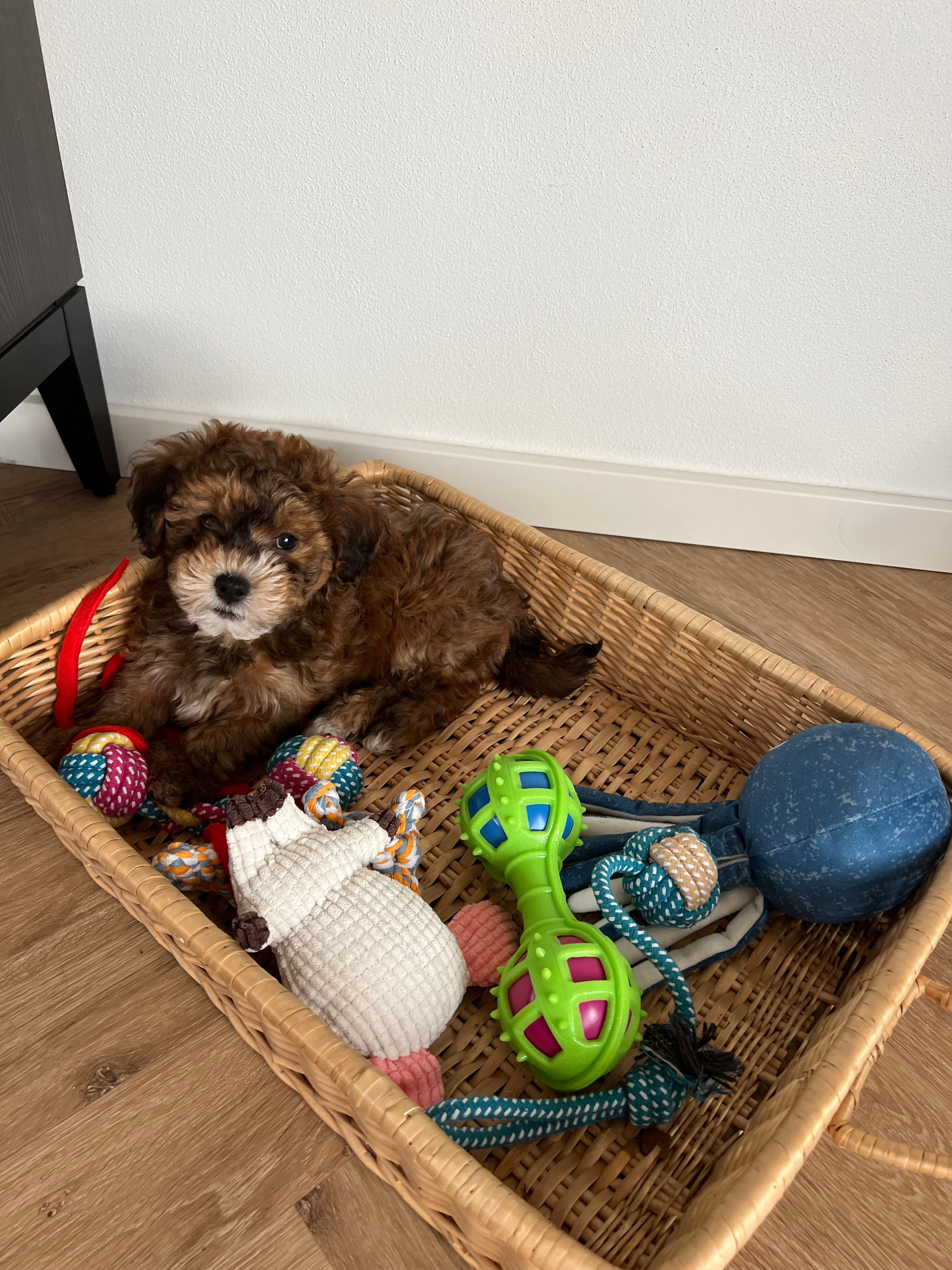Why is my puppy biting?
Puppies bite for a number of reasons, and it's a natural part of their development. One of the primary reasons is that they're exploring the world around them. Puppies use their mouths in the same way humans use their hands. By biting things, they learn about textures, shapes, and tastes.
Another important reason is that puppies go through a period of teething, which can be painful. Just like human babies who are teething, puppies find relief by chewing and biting on things because it can massage their gums and reduce discomfort.
Socialization also plays a role. Puppies learn to play and interact with their siblings and other dogs through play, which often includes biting. This play helps teach them how to control their bite force, also called "bite inhibition." If one puppy bites too hard, the other puppy will often respond by whining, which teaches the puppy to be more careful.
Finally, boredom and excess energy can lead to puppies biting. Without enough mental and physical stimulation, puppies may resort to biting furniture, clothing, or people as a way to entertain themselves. Therefore, it is important to provide puppies with enough play and activity so that they do not develop unwanted habits.
It is important to deal with puppy biting in a positive way. Providing appropriate toys and teaching your puppy what to and what not to bite on is crucial for their development. At the same time, you should avoid harshly punishing your puppy for biting, as this can lead to fear or aggressive behavior.
How do I settle it?
Weaning your puppy off biting requires patience, consistency, and positive reinforcement. Here are some tips to help you reduce your puppy's tendency to bite.
1. Use appropriate toys: Make sure your puppy has access to plenty of toys to bite. When your puppy starts biting your hands or other things they shouldn't be biting, offer a toy instead. This teaches your puppy what is allowed to bite. Here, it can be beneficial to use toys with bumps on them, such as this one:
Toys with pacifiers
2. Ignore unwanted behavior: If your puppy bites too hard, you can try giving a loud “off” or pulling your hand away and stopping play for a moment. This mimics the way other puppies react when they are bitten too hard during play. Your puppy will learn that play and attention stop when they bite too hard.
3. Praise desired behavior: When your puppy plays nicely without biting or when he chooses to bite his toy instead of you, praise him and perhaps give him a treat. Positive reinforcement helps your puppy understand what you want from him.
4. Train “let go” or “no”: Teach your puppy commands like “let go” or “no” so that he knows when to stop biting. When the puppy lets go on command, he should be rewarded immediately so that he understands that this is the desired behavior.
For this training, it would be ideal to use a tug toy, such as this one:
Pull-along toys
Read more

Having a dog in your home is a loving and rewarding experience, but it can also be a learning process when it comes to finding the right products for your four-legged friend. As a dog owner, I've m...

A dog car seat is not only a safety measure, but also a way to make car trips comfortable for both you and your dog. It gives you peace of mind knowing that your four-legged friend is safe while...
